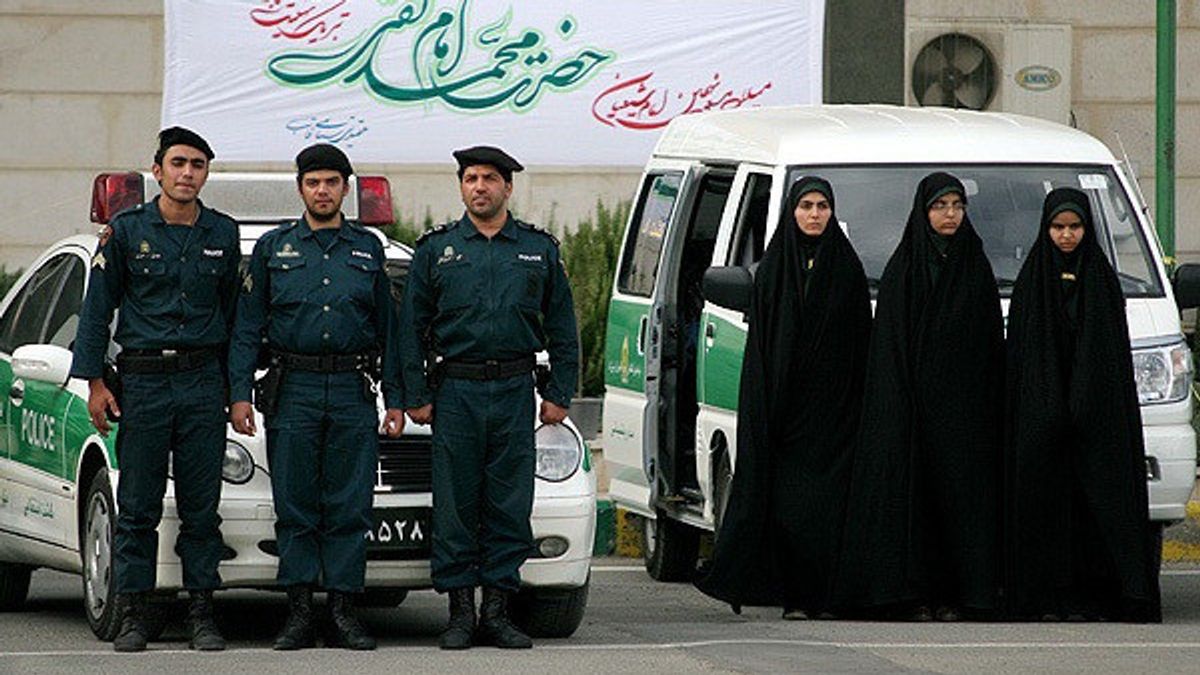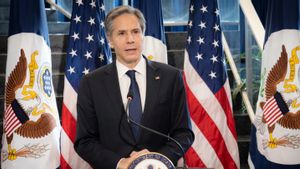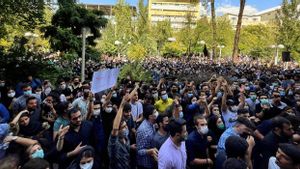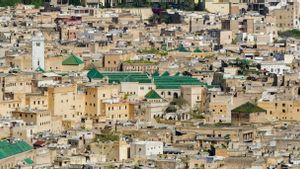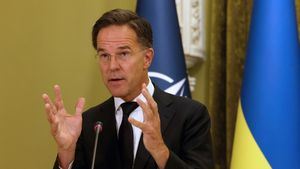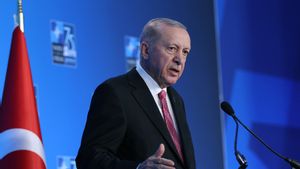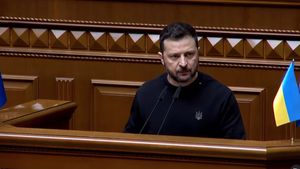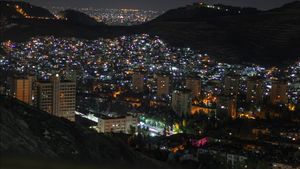JAKARTA - Protesters in Iran on Sunday called for a three-day strike this week, increasing pressure on the authorities, amid a flurry of news of the disbandment of the moral police and plans for a review of the country's headscarves rules.
Hundreds of people have died in the unrest that erupted in September after the death in custody of Mahsa Amini, a 22-year-old Iranian Kurdish woman who was detained by the morality police for violating the headscarf rule.
Protesters seeking to maintain their challenge to Iran's rulers called for a three-day economic strike and a rally at Tehran's Azadi (Freedom) Square on Wednesday, according to individual posts shared on Twitter by accounts not verified by Reuters, as reported on December 5.
Similar calls for strike action and mass mobilization have in recent weeks resulted in an escalation of unrest that has swept the country, some of the largest anti-government protests since the 1979 Iranian Revolution.
The activist news agency HRANA said 470 protesters had been killed by Saturday, including 64 minors. It said 18,210 demonstrators were arrested and 61 members of the security forces were killed.
Meanwhile, residents and newspapers such as the Shargh daily said the appearance of the morality police had diminished in recent weeks, ostensibly to avoid wider protests.
On Saturday, Attorney General Mohammad Jafar Montazeri was quoted by Iran's semi-official Labor News Agency as saying the morals police had been disbanded.
"The same authorities that made up this police force have shut it down," he was quoted as saying. He said the morality police were not under the authority of the judiciary, which continues to monitor acts of behavior at the community level.
Meanwhile, Iran's state-run Al-Alam news channel on Sunday denied media reports, which claimed that the country's morals police had been disbanded, citing Al Arabiya.
Earlier on Sunday, several news outlets reported that Iran had abolished the morality police, tasked with enforcing the country's strict dress code.
The report cited comments made by Attorney General Montazeri at a religious conference on Saturday.
According to the semi-official ISNA news agency, Montazeri was asked by one of the attendees "why the morality police were closed," to which Montazeri responded: "The morality police have nothing to do with the judiciary and were closed by the same court".
"Although of course, the prosecutor's office will continue to monitor people's social behavior," he added.
Al-Alam reported: "No official in the Islamic Republic of Iran has confirmed the closure of the morality police."
There was no confirmation of the shutdown from the Interior Ministry which is in charge of the morality police, and Iranian state media said Attorney General Montazeri was not responsible for overseeing the force.
Earlier, Attorney General Montazeri said Thursday, Iran's parliament and judiciary were reviewing the country's mandatory headscarf law, according to pro-reform outlet Entekhab, citing CNN.
VOIR éGALEMENT:
Top Iranian officials have repeatedly said Tehran would not change the Islamic Republic's mandatory headscarf policy, which requires women to dress modestly and wear headscarves, despite 11 weeks of protests against strict Islamic regulations.
It is known that wearing the headscarf in public is currently mandatory for women in Iran, under strict laws enforced by the country's so-called morality police.
The English, Chinese, Japanese, Arabic, and French versions are automatically generated by the AI. So there may still be inaccuracies in translating, please always see Indonesian as our main language. (system supported by DigitalSiber.id)
